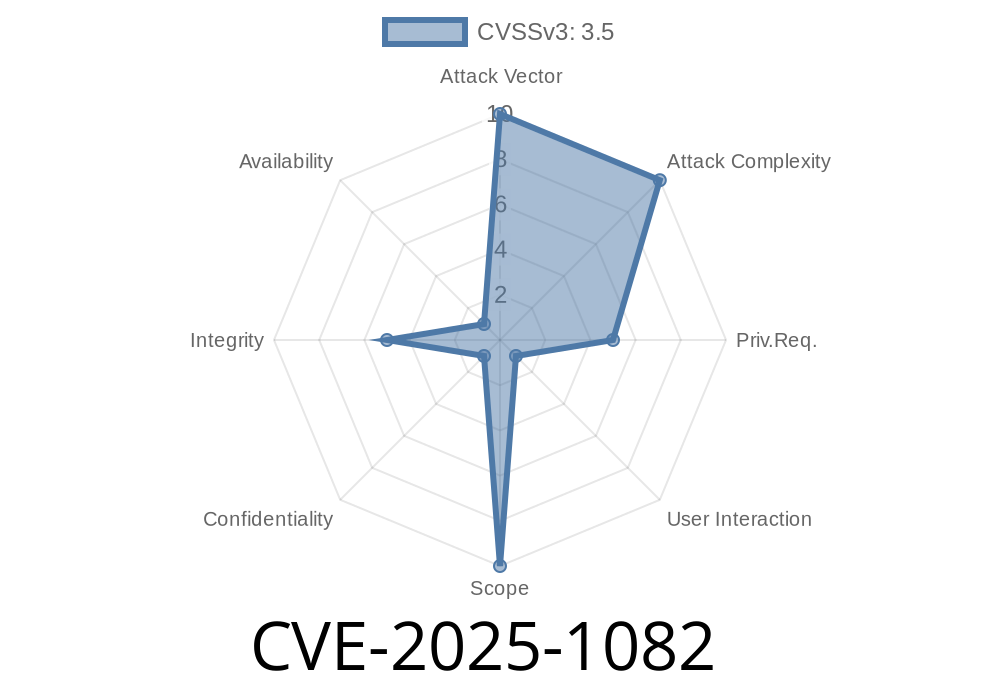---
Overview
A critical security vulnerability, CVE-2025-1082, has been discovered in the open-source examination platform Mindskip xzs-mysql 学之思开源考试系统, version 3.9.. The issue affects the /api/admin/question/edit endpoint's exam edit handler, specifically via the improper sanitization of the title and content parameters. This oversight enables attackers to perform reflected Cross-Site Scripting (XSS) attacks, potentially compromising the accounts and data of administrators and users.
This post provides an exclusive, easy-to-understand breakdown of the vulnerability, sample exploit code, mitigation strategies, and helpful reference links.
Where Does It Happen?
- Affected File / Endpoint: /api/admin/question/edit
How Does It Work?
The server does not properly escape or sanitize user-provided input for the title or content fields when editing a question. An attacker can craft malicious input, which, when rendered in an admin or user's browser, executes arbitrary JavaScript.
Simple Example Exploit
When sending a POST request to /api/admin/question/edit, an attacker can inject malicious JavaScript code in the title or content field.
Example exploit using curl
curl -X POST \
-H "Content-Type: application/json" \
-d '{
"id": 123,
"title": "<img src=x onerror=alert(\"XSS in title!\")>",
"content": "<script>alert(\"XSS in content!\")</script>"
}' \
http://example.com/api/admin/question/edit
If an admin views the edited question, the browser will pop up JS alerts, proving successful execution of injected JavaScript.
Security Impact
- Any authenticated admin who views the malicious question will unknowingly execute attacker-controlled code.
Why Is This Dangerous?
Reflective XSS vulnerabilities are among the most exploited issues in web applications. Since the Mindskip xzs-mysql exam system is often installed in educational or public environments, unpatched instances are attractive targets.
Attackers don't need direct access—just the ability to inject or influence exam or question content.
How to Mitigate?
Temporary workaround:
Until an official patch is available, filter out or escape HTML special characters in title and content inputs. Administrators should also restrict access to the question editing interface.
Sample server-side patch (PHP)
function sanitize_input($input) {
return htmlspecialchars($input, ENT_QUOTES, 'UTF-8');
}
// Before saving to the database:
$title = sanitize_input($_POST['title']);
$content = sanitize_input($_POST['content']);
If using a different backend technology (Node.js, Python, etc.), make sure to use equivalent escaping/sanitizing functions.
References
- Original CVE Record
- NVD Entry (if available)
- Mindskip xzs-mysql Official Repository
- OWASP - Cross Site Scripting (XSS)
Final Notes
This vulnerability shows how important input validation is, even in open-source educational software. If you run an instance of Mindskip xzs-mysql 3.9., update as soon as a patch becomes available, and always sanitize user input.
No response from the vendor means users must take extra precautions. Be sure to watch the official GitHub repository for security updates.
Timeline
Published on: 02/06/2025 23:15:08 UTC
